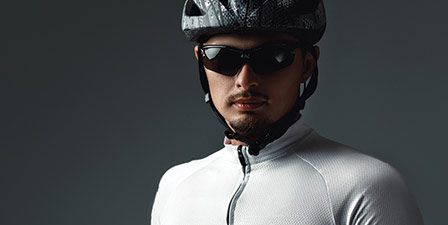 The Yin and Yang of light: On the light side (pun intended) we owe our very life and our sight to sunlight but on the dark side, sunlight is pure radiant energy that has the potential to harm our eyes, our skin, our immune system and life on planet earth. OK, that’s a bit morose but here’s the upside: We have the means to prevent exposure and protect our eyes and our skin from damage. Protecting the planet is beyond the scope of this article.
The Yin and Yang of light: On the light side (pun intended) we owe our very life and our sight to sunlight but on the dark side, sunlight is pure radiant energy that has the potential to harm our eyes, our skin, our immune system and life on planet earth. OK, that’s a bit morose but here’s the upside: We have the means to prevent exposure and protect our eyes and our skin from damage. Protecting the planet is beyond the scope of this article.
“Go outside and play” was the resounding cry heard in my youth. It translated to “Get out of my hair!” Although the motivation for sending me out to play was not altruistic, it may have been beneficial to my health, happiness, IQ and eyesight.
According to the American Society for Microbiology, playing outdoors exposes us to a soil bacteria Mycobacterium vaccae that may have anti-depressant properties. I’m remembering all of those lovely mud pies I made as a kid. This friendly dirt borne bacteria may have a positive effect on learning behavior by increasing serotonin levels. “Research suggests that M. vaccae may play a role in anxiety and learning in mammals,” says Dorothy Matthews. “It is interesting to speculate that creating learning environments in schools that include time in the outdoors where M. vaccae is present may decrease anxiety and improve the ability to learn new tasks.” (“Can Bacteria Make You Smarter?” 2010, May 24, retrieved 5 July 2018 from phys.org/news/2010-05-bacteria-smarter.html)
There is also a positive correlation between time spent outdoors and a reduction in myopia. Based on a meta-analysis of several studies, a 2 percent reduction in myopia was realized for every hour spent outdoors. What is yet to be determined is whether the reduction in myopia is due to an increase in the amount of light intensity, UVR exposure or increased distance focus. Research continues, and hopefully, these answers will surface soon.
Spending time outdoors is associated with prevention of myopia and a slowing of the shift to myopia in young children. Meta-analysis results indicate that, “Increased time outdoors is effective in preventing the onset of myopia as well as in slowing the myopic shift in refractive error. But paradoxically, outdoor time was not effective in slowing progression in eyes that were already myopic.” (ncbi.nlm.nih.gov/pubmed/28251836)
• Deborah Kotob
[email protected]
2020mag.com/education













